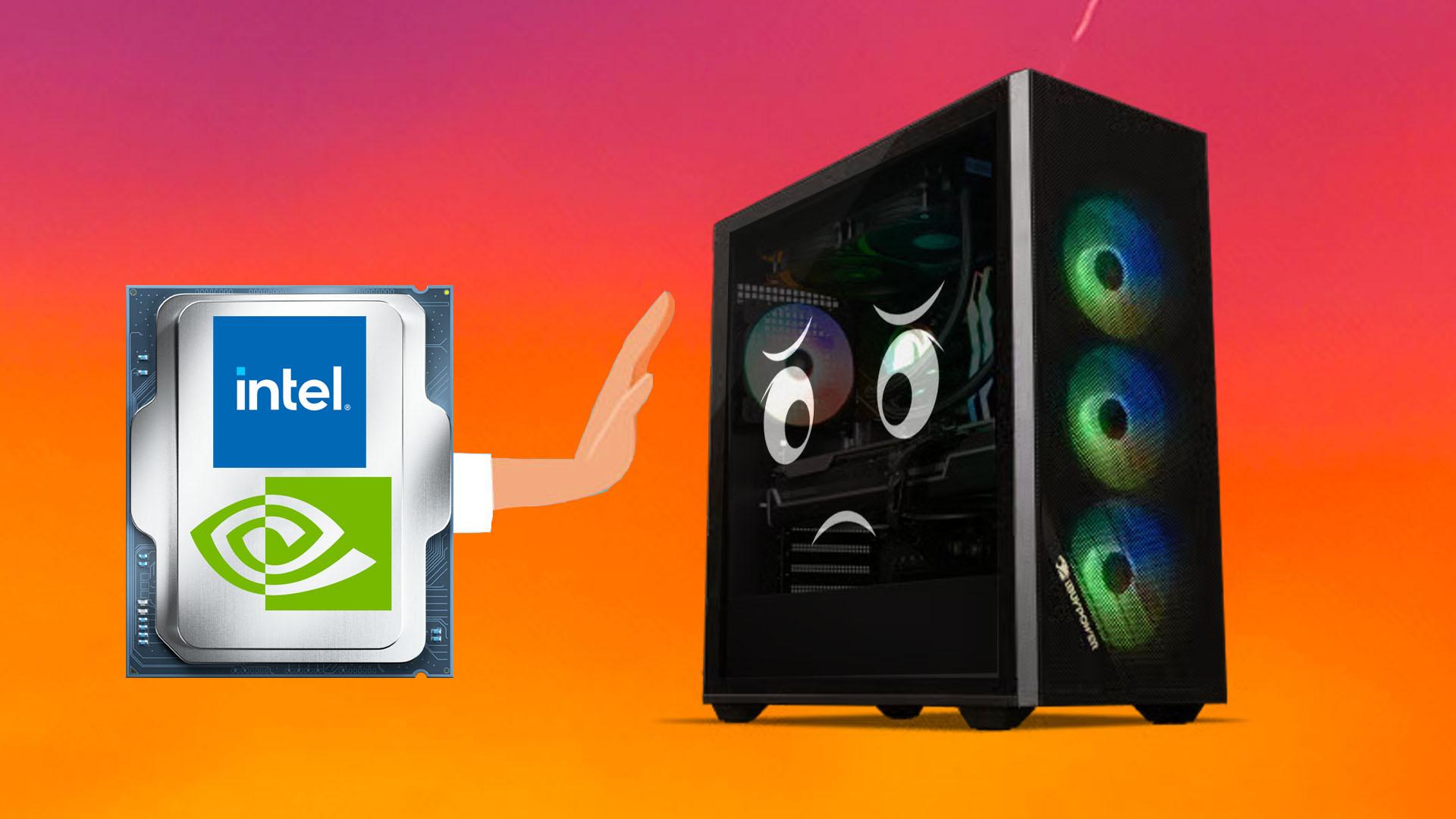-
Noticias Feed
- EXPLORE
-
Páginas
-
Blogs
-
Foros
Nvidia x Intel CPUs probably aren't coming for your desktop gaming PC, yet

Nvidia x Intel CPUs probably aren't coming for your desktop gaming PC, yet
When news broke that Intel and Nvidia were set to join forces to create CPUs with integrated Nvidia GPUs, one factor that wasn't immediately clear was just what sort of chips would and wouldn't be affected. However, in a press conference yesterday, Nvidia CEO, Jensen Huang, couldn't stop talking about the 150 million laptops that are sold each year, giving a very, very strong hint that your desktop CPU choices won't be affected by this partnership any time soon.
Instead, the combined force of Intel and Nvidia will, as well as being focused on datacenter chips, be all about shaking up the laptop market. Our best gaming laptop guide is already dominated by machines that combine separate Intel CPUs and Nvidia GPUs, with AMD not having a strong footing when it comes to dedicated laptop GPUs. However, AMD is making inroads with very impressive CPUs that contain integrated Radeon GPUs, as seen in our Asus ROG Flow Z13 review and Razer Blade 16 review.
This is all speculation for now, as it's more than possible that Jensen was merely referencing just one large area of potential partnership business. However, if the Intel x Nvidia partnership was intending to strike right at the heart of the desktop PC, we'd have expected to hear at least some hint about that being the case.
Similarly, no mention was made of gaming handhelds or game consoles, both of which are areas AMD currently dominates. Other than the Nintendo Switch, all the major full-size consoles use custom AMD chips, while the likes of AMD's Ryzen Z1 Extreme and Ryzen Z2 Extreme are the chips of choice for the vast majority of handhelds. Even the Steam Deck uses a custom AMD CPU.
All of this ultimately makes a lot of sense, as it's still the case that simply adding almost any separate graphics card to a desktop PC is going to result in a far bigger performance upgrade than relying on integrated graphics. While Nvidia will be bringing its RTX tech to the integrated GPU space, simple physics will mean that the raw processing power of any such chips will be constrained in just the same way as AMD's current CPUs with integrated graphics.
For instance, in our AMD Ryzen 5 8600G review, we saw that this impressively powerful chip could still only manage to deliver an average of 41fps in Cyberpunk 2077 with the game running at 1080p with low detail settings. In contrast, a card such as the $250 RX 7600, can run the game at high detail settings and comfortably hit above 60fps.
Speculation aside, there's no doubt this move is set to seriously shake up the PC and computing industries, and we're certainly excited to see the battle for gaming laptop supremacy that could result from it. But what do you think about the announcement? Does it all feel a little irrelevant if it's not coming to desktop PCs, or do you think AMD should be quaking in its boots? Let us know your thoughts over on our community Discord server, where you can talk to us and like-minded readers about PC tech, gaming, and more.


